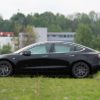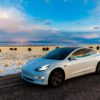
In this article, I will explore some of the best options for this class of vehicle. First and foremost, it is important to understand that there are two major types of electric vehicles: the plug-in hybrid and the all-electric vehicle (aka full-electric vehicle). Plug-in hybrids use gasoline as a power source, and they have been on the market for some years. All-electric vehicles use their own battery power to power the vehicle, and they have been available for decades.
Best Fully Electric Cars
If you are looking for the best fully electric cars, then a full-electric vehicle would be your best bet. These vehicles come in many different makes and models, such as the Mercedes-Benz S-Class, the Ford Focus, and the Toyota Prius. However, none of these cars are considered to be a true all-electric vehicle, because they do still need a gasoline engine to function. In fact, the entire battery pack needs to be recharged periodically.
Maximum Electric Car Speed Limit
As you may know, the maximum electric car speed limit is around 70 kilometres per hour. However, many electric cars have reached speeds of more than that. The reason for this is purely technological, because engineers have found ways to pack more electricity into a small space. Today’s most efficient battery packs can contain about eight kilometres of electricity, which is just under six hundred dollars per kilowatt-hour. In contrast, the best gasoline alternatives can only manage about six kilometres of driving time on a single charge. The nickel-cadmium battery in a gasoline vehicle will power a vehicle for a few hours once, but it must be recharged over again.
A full-electric vehicle, such as the Prius, will have a much higher maximum speed limit, because its electric motor will be propelling a much larger vehicle. Because the electric motor is propelling a bigger vehicle, it needs a greater maximum acceleration. To get an idea of how fast the electric car will go, consider the electric car’s electric engine versus the weight of the vehicle and the fuel needed to propel it. A conventional vehicle will use a great deal more fuel and energy than an electric one. A small electric car can go up to sixty kilometres per hour, but it will take longer to accelerate to that speed.
Questions About Electric Cars
One of the big questions about electric cars is theprone to frizz than their straight counterparts. On the positive side, they use very little fuel, so emissions are at a very minimal level. On the negative side, they do not hold a constant speed, and a corner could become too fast for them. They cannot compete with large trucks, since they cannot decelerate when they stop, and the overall effect will be less safe for the environment. The best fully electric cars will have zero-emission motors and be able to accelerate to a certain speed without spending more energy than the vehicle needs to.
Final Words
For most people in the United States, fuel costs are a huge problem. Not only are they expensive, but they also contribute to air pollution. In order to curb this problem, the government has been encouraging all-electric and hybrid cars for decades. Today, with more pollution problems occurring around the world, we need to take every possible step to reduce the amount of pollution in our environment. BMW and other luxury auto manufacturers are working hard to bring an end to pollution and increase fuel economy for their consumers.





